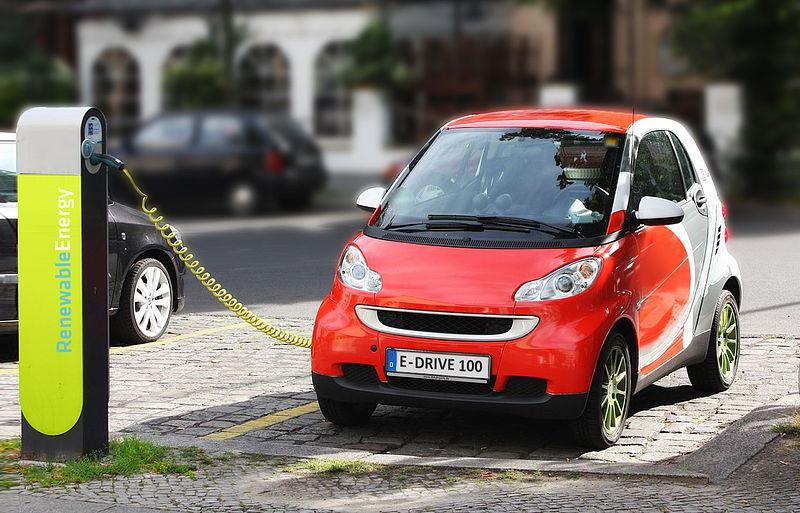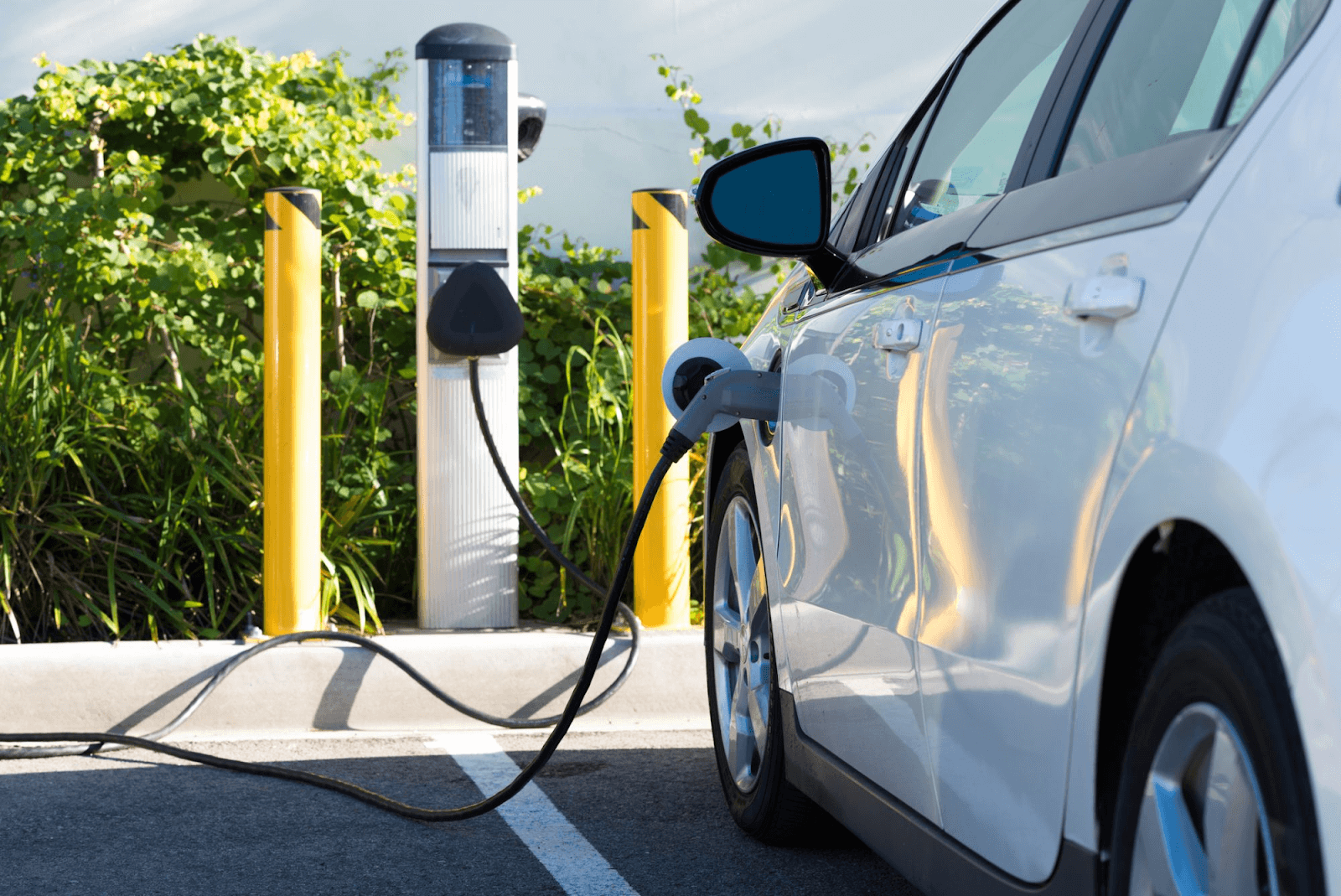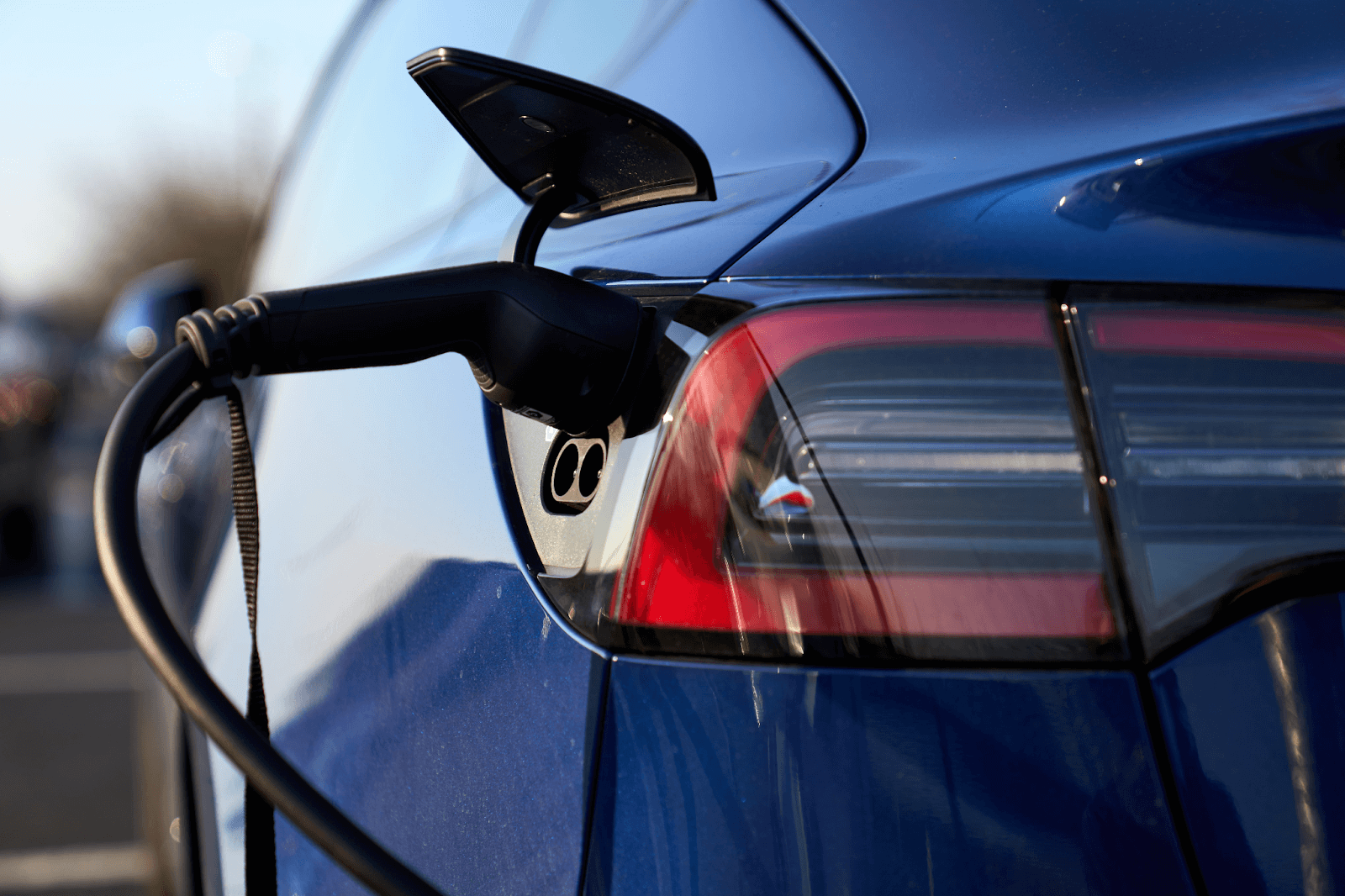

Roman Danaev
When it comes to getting a new car, one has to consider all the financial nuances implied. This often becomes a reason why people put off the research and choose an option that isn't tailored to their needs.
Hire purchase and leasing are the two most popular ways of financing an asset. When you work out which option suits you best, you have to consider a confluence of key factors and know the main differences between these two agreements.
This article will help you narrow down the choices by outlining the pros and cons of each arrangement, so you can quickly find the perfect fit.
How Does Hire Purchase Work?
A hire purchase (abbreviated HP) is a type of credit agreement. As the name implies, a hire purchase allows a borrower to "hire" an asset, which can be a car but also a less expensive item, for instance, a smartphone. Once you sign an HP finance agreement, you will have to pay a settled sum in equal monthly payments. This is a perfect finance option for those eager to own a car (new or used) but unable to pay the full amount to take the wheel here or now.
Technically, you don't own the car until you make the final payment. Still, an HP is widely recognised as the gold standard for spreading out the total cost of an item. Usually, borrowers pay a non-refundable 10% advance of the overall value and then cover the rest of the payments under a contract that runs from one to five years. As a hire purchase is a type of car finance option, you will have to pay the interest and monthly installments. However, if your credit score is high enough, you can seize an attractive interest rate.
The car will become your property when you have paid off the finance in full. Once you do, you will also need to pay a small ownership of £100-200.
Some dealers offer favourable HP options at 0% APR, provided they have contracts with individual vendors. However, such an offer can only be approved if you have an immaculate credit history.
Find car finance deals with the best rates!
Get a quoteHow Does Leasing Work?
A finance lease is another popular method of financing a vehicle. Its distinctive feature is a minimal initial cost, but, like with hire purchase, you will make monthly payments according to the contract provisions. Leasing means that you will never become the owner of the car. It's ultimately owned by the company you concluded a finance lease with, so, basically, you are paying to hire out a vehicle.
A finance lease is another popular method of financing a vehicle. Its distinctive feature is a minimal initial cost, but, like with hire purchase, you will make monthly payments according to the contract provisions. Leasing means that you will never become the owner of the car. It's ultimately owned by the company you concluded a finance lease with, so, basically, you are paying to hire out a vehicle.
You will have to sign a finance lease agreement that is usually valid for three or four years to lease a car. The dealer calculates the number of monthly instalments by comparing the price of the new car with its salvage value (the cost of the car upon leasing expiration).
The standard amount of the first payment for a financial lease is £1,500 plus VAT. However, one can also pay a larger initial rental to reduce the monthly payment. Once the upfront cost is funded, you will have to pay a predetermined sum plus VAT each month. That's probably the main difference between a financial lease and a hire purchase, as the latter requires a borrower to pay all applicable VAT at once. The financial lease also offers balloon options, the essence of which will be described later on.
Hire Purchase vs. Lease: Outlining the Differences
Hire Purchase (HP) differs from Financial Lease (FL) in many aspects, including cost and ownership. Let's examine the most significant differences between these car finance options in detail:
| Hire Purchase | Leasing |
|---|---|
| A hirer pays an upfront amount and makes pre-agreed fixed payments each month until they cover the overall cost of the vehicle. | A lessee must pay an upfront rental and make fixed monthly payments. However, these instalments cover only the depreciation of the vehicle during the life of the leasing agreement. |
| Upon making the final monthly hire purchase payment, you automatically become the legal owner of the car. | Once a lease deal expires, you return the vehicle to the leasing company. However, you can sign a new agreement and receive the keys to a new car. |
| A hire purchase agreement doesn't set any mileage limitations. However, monthly instalments are generally higher, as a borrower contributes to the total price of the vehicle to eventually become its owner. | You have to estimate at the outset how many miles you will drive in a year. If you don't stick to the declared mileage, you will be obliged to pay excess charges. |
| When applying for a hire purchase option, one should be ready for a credit check from a dealer. The good thing is that your credit history doesn't have to be as perfect as required for a traditional loan. | Just like hire purchase, a financial lease is subject to a thorough credit check performed by the respective finance provider. You need a pretty good credit score to be eligible for a lease deal. |
| If you have a poor credit score, your APR (Annual Percentage Rate) will be higher, increasing the amount of each monthly payment. | Typically, there is a flat 20% rate for VAT charges, which applies to all makes of new lease vehicles. Thus, you don't have to pay extra, and the monthly payment will be as advertised. However, you need to keep your vehicle in good condition and not exceed the declared annual mileage. |
Governing Accounting Standard
The accounting guidelines for both leases and hire purchases are issued by the International Financial Reporting Standard (IFRS 16), released in January 2016. Every entity that offers such rental services as leasing arrangements or hire purchases should operate according to this standard.
Down Payment
The cost calculation of monthly payments is usually based on the difference between the current price of an item over its life cycle. The upfront payment is generally pretty low. In hire purchase, the monthly payments include the overall price of an asset and the interest for the period of use; that's why the upfront instalment is usually quite high.
Ownership Rights
A financial lease implies that ownership rights over an asset will always belong to a lessor. A lessee, in turn, can use the respective asset but can't purchase it when the contract expires. A hire purchase agreement assumes that the hirer will eventually own an asset. You become the item's owner once you pay off the last monthly payment.
Maintenance Costs
A traditional leasing agreement entails that repairs and maintenance of the leased equipment fall under the lessee's responsibility. However, you can opt for an operating lease, thus forcing the lessor to take care of the maintenance issues. With a hire purchase arrangement, the responsibility for repairs and operation lies with you.
Duration
Leases are your perfect match if you want to rent an expensive asset (e.g., land, building, etc.) for a long time. Hire purchases' life span is relatively short. These agreements are intended for cheaper items, for instance, a car or a piece of equipment.
Depreciation
You can claim for depreciation no matter which financial option you choose. However, in terms of lease financing, depreciation depends on an expense recorded in the accounting books of the lease company. In hire purchase, depreciation is claimed based on transactions.
Taxes
You pay monthly instalments plus VAT for using an item, thus covering your rentals under the lease contract. In contrast to a financial lease, a hire purchase means that you don't have to pay VAT each month.
Monthly Payments
As we have already mentioned above, HP entails higher monthly payments than FL, as you are paying off the overall value to become the car owner. Eventual ownership is indeed a huge bonus, but you should consider not only the cost of the vehicle but also the interest rate.
Opting for a longer plan will bring down your monthly instalments but increase the lump sum, as you will have to pay extra interest. Plus, you need to consider additional costs for the car such as running and maintenance.
HP allows you to purchase a used car, thus significantly lowering the overall cost, while FL only offers deals on new automobiles. Still, leasing implies more attractive monthly instalments, so you can afford a high-tech car on a more modest budget.
What Is a Balloon Payment?
A substantial advantage of a leasing agreement is the possibility to opt for a balloon. Balloon payments reduce the monthly outgoings but oblige you to contribute a larger sum closer to the expiration date of the agreement. Such a payment system is based on the projected cost of the car and entails mileage limitations. The larger the balloon is, the less you pay per month. It looks like a favourable offer, doesn't it? However, there are some pitfalls: choosing a balloon option risks getting back less money as the balloon cost is usually subtracted from the surplus.
What About Mileage?
It's almost impossible to know exactly how many miles you will drive next year. There might be different situations, such as emergency trips, that will add you some extra miles. On the other hand, you can declare a mileage of 10,000 miles and use only half of it; you will still have to pay for this option every month.
While hire purchase is often criticised for its lack of flexibility, it is surprisingly flexible in terms of mileage. In particular, you don't have to declare your mileage limits at all.
Lease arrangements, on the contrary, force you to specify an annual mileage cap. If you don't stick to it, you will have to pay off the extra miles. The cap usually ranges from 8,000-30,000 miles. There are also high mileage lease deals that allow lessees to drive more than 50,000 miles each year, but there is always a set limit. If you drive a lot and think that you are going to surpass the permitted mileage, then leasing is not a good option.
The Extent of Financing
Lease finance can be referred to as complete financing, as you don't have to make an advance payment. HP requires an upfront instalment which can be quite a considerable sum of money. Therefore, a hire purchase is called a partial option of financing.
Early Termination
If you have paid more than half of the hire purchase, you can return the car to the lessor and cancel the payment of the rest of your monthly instalments. By doing so, you conclude a so-called "Voluntary Termination" agreement.
A lease agreement can also be terminated early. This often happens to be higher than the remaining amount you owe to the company. We strongly recommend choosing a period of contract length wisely to avoid such a situation.
Hire Purchase vs. Lease: Advantages and Disadvantages
We have already specified the major differences between a hire purchase and a financial lease. Before we proceed to their similarities (and they do share some), let's quickly look at their specific pros and cons.
Hire Purchase: Pros and Cons
In a nutshell, a hire purchase option will ideally suit those who dream about owning their own car. However, it's sometimes considered a drawback, as you are fully liable for the vehicle when the final payment is made.
| Advantages | Disadvantages |
|---|---|
| Upon expiration of the contract, you become the owner of the car. | You don't own the car until you make the final payment. |
| There are no mileage restrictions | High monthly instalments |
| You can have a low credit score to be eligible for the offer. | High interest rates |
| You can opt for a used car, thus reducing monthly instalments. | You can't return the car to the lessor and get a refund. |
| You pay all applicable VAT at the start. | Starting the finance is pretty costly. |
Leasing: Pros and Cons
Finance leases offer flexibility, but you can never own the leased vehicle as it belongs to the finance company you have signed a contract with.
| Advantages | Disadvantages |
|---|---|
| Low monthly instalments | Upon expiration of the contract, you don't own the car and have to return it. |
| A new state of the art car with every new agreement. | Annual mileage restrictions. Extra miles = extra costs. |
| No additional expenses on car upkeep and maintenance. | You can't opt for a used car and lower monthly instalments. |
| Upgrades available at a reasonable price. | You can get some money back as a rebate on rentals if the lessor sells the car you returned. |
| You can opt for balloon payments. | If you take a balloon payment and the car's value decreases, you will have to pay extra. |
Similarities
HPs and FLs are both financial options, so besides differences, they also share some similar features. Let's get acquainted with them.
Fixed Periodical Payments
Both financial lease and hire purchase arrangements mean that a client periodically pays the lessor fixed instalments.
For items of small value, like vehicles or mobile devices, the is charged each month. However, the payments for more valuable assets can be due quarterly or even annually. Both HP and FL agreements are valid for a fixed pre-agreed period of time.
Practical Ownership Rights
Practical ownership is another typical feature for both lease and hire purchases. In a financial lease, you have sole use of the item, but it doesn't belong to you. You make monthly instalments to the lessor to own the asset for the set period of time.
In hire purchase, you also have to make timely instalments, but you have the option of purchasing the asset upon the expiration of the contract. So, a hire purchase is a "rent-to-own" agreement, while a financial lease is a "pay-to-borrow" arrangement. Ultimately, you have control over the asset in both cases. The main similarity here is that you are prohibited from selling the respective asset no matter what kind of agreement you enter.
What Works Out Better: HP or Leasing?
Leasing contracts can be described with just one word - "flexibility." These financial arrangements offer businesses and individuals more flexibility in terms of choosing the ideal asset within their budget.
With leasing, you can use the item as long as it's functional and pay for it as long as it essentially benefits your business or life. You can also make plans for the future, as once the contract expires, you will either get rid of the outdated asset or replace it with a brand new one. You also don't have to worry about disposal of the equipment at the end of its useful life or any warranty issues - that's the headache of the lessor.
However, if you want to eventually own the asset, you'd better focus your attention on hire purchase deals.
Consider Alternatives
Though lease or HP are the most popular options for financing a vehicle, there are also other attractive offers on the market you could consider. For instance, you could consider PCP (Personal Contract Purchase) or a traditional bank loan.
By opting for a Personal Contract Purchase, you solve the issue with the ownership rights inherent to a financial lease. It can be a perfect alternative if you think you might want to purchase an item at the end of the contract. With PCP, you can choose to make a balloon payment right before the expiration date and become the legitimate owner of the vehicle.
If you are interested in a hire purchase option, you can also consider a personal loan. As with a hire purchase, a bank loan grants you ownership over the vehicle. The main difference is that you can set a longer period of time for the duration of the contract - up to 7 years.
Summary
Hire purchases and leases provide a fantastic opportunity to use an item for a set period of time. These finance options attract individuals and legal entities that benefit from "hiring" or "leasing" the sophisticated equipment or expensive vehicles they need. No wonder that both HP and FL are widely recognized as reasonable business strategies for those who want to own or use the most modern technologies but are limited to low budgets.
Contents
Latest News
| Loan amount: | £16,000 |
|---|---|
| Length of loan: | 60 months |
| Interest rate: | 12,9% |
| Amount of interest | £5,793.84 |
| Total payment: | £21,793.84 |





